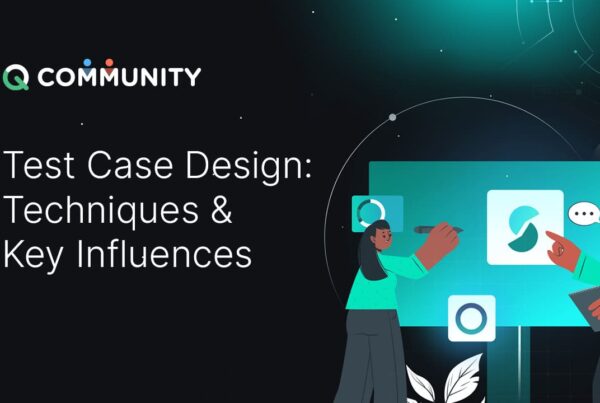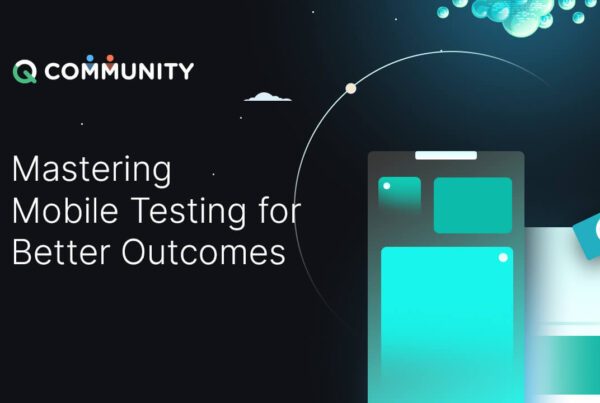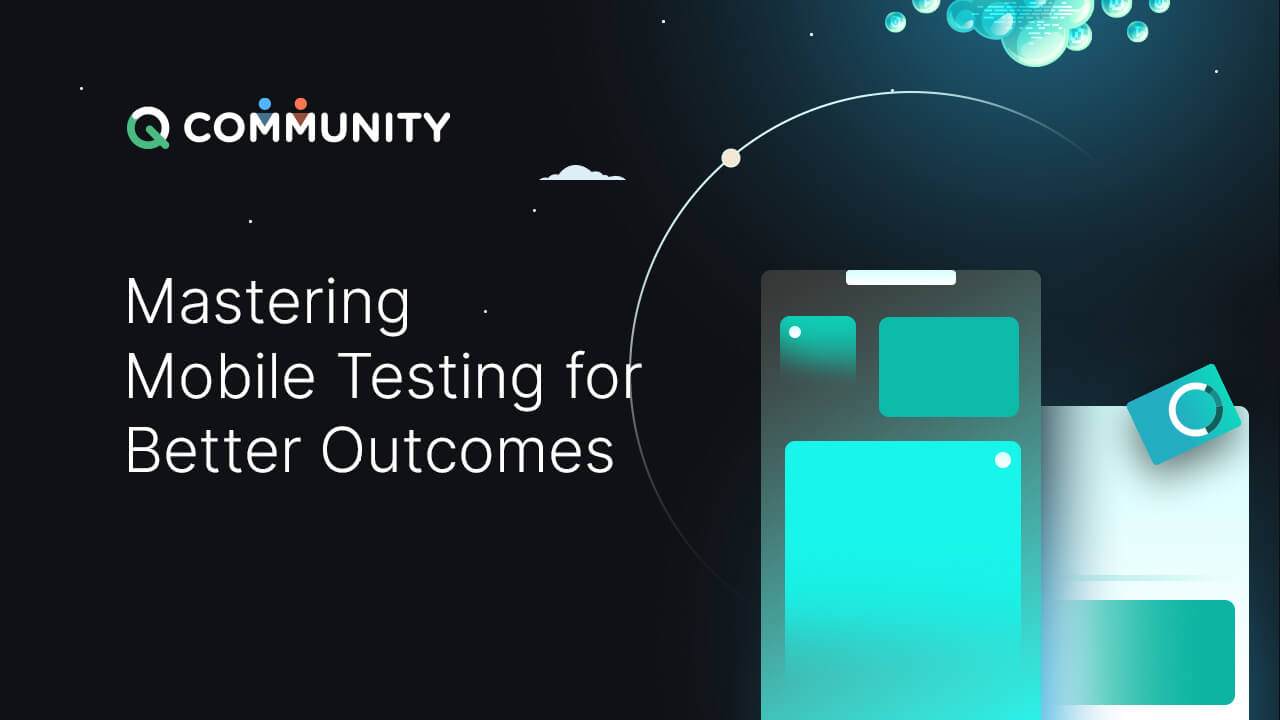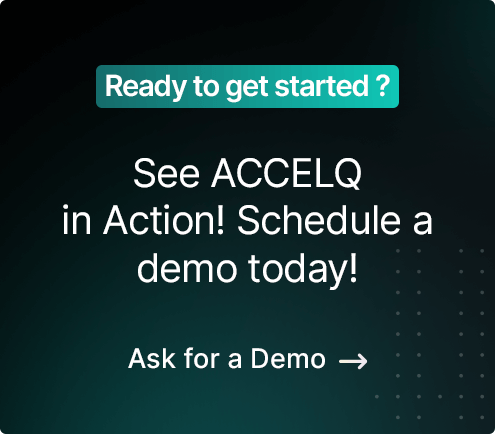MASTERING MOBILE TESTING FOR BETTER OUTCOMES

In the present era, Mobile is part of Human needs, and that has resulted in a huge increase of mobile users across the globe. As all the businesses want to show their presence in the Mobile devices, which brings a lot of apps in the mobile App Store. At some point, it is difficult to keep track of the largely app industry, but to make sure the quality of the Apps coming into the market product teams has incorporated Mobile testing.
Mobile testing, in simple terms, is the process by which apps for mobile devices are tested for functionality and usability. But, as discussed earlier, due to the large number of apps coming to the market it is quite laborious to test the app in different Mobile operating systems like Android and iOS.
To achieve the best out of Mobile Testing, we must first understand how to master the same. Let’s discuss some of the best ways to implement Mobile Testing Projects which can assure better outcomes.
Mobile Test Automation

We all agree to the fact that depending completely on manual testing is not the ideal way to approach any testing project, and same goes for Mobile too. So, the first way is to implement Mobile Automation and try to create Automation Suites like Smoke and Regression to fasten the testing process.
Automation not only provides speed in execution, rather the main benefit is we can make it part of the Release cycle by integration with CICD. Automated tests provide consistent and reliable results, reducing the risk of human error and it can be easily scaled to cover a large number of test cases, especially as the number of devices and platforms increases. It also helps to reduce costs in the long run by enabling faster release cycles and reducing the need for manual testing.
Overall, automation testing helps ensure that mobile applications work as expected on a wide range of devices and platforms, improving the quality of the product and the user experience.
Get Started for free today.
No credit card needed | No obligations
Mobile Testing with Cloud Devices
The second way to improve Mobile Testing is moving towards cloud devices rather than being stuck in the old legacy approach of testing on owned devices. We all understand that in the market, we have many OS like Android & iOS, and similarly we have different models of devices like iPhone 13,14,12,X, and the same goes for Android devices too. Now buying all those different types of devices is quite an investment, and quite difficult to get ROI from testing. That’s where the cloud devices come to rescue.
Cloud devices usually come with a pay per use model, so testing teams can simply reserve a device of their choice and then release the device post completion of execution. Cloud devices help to Reduce test execution time with utmost quality and we can run automated tests across multiple mobile devices in parallel. In fact with the implementation of cloud devices, we can completely reduce the initial operational costs and manage internal device labs too.
CICD Integration
This is one of the most important ones as if Automation Suite is not part of the CICD pipeline, then we are ot doing justice with all the efforts that have been given to automate the test cases. With CICD integration, we will be able to put checks on the Release Pipeline with the Automation tests execution.
Usually, in most of the projects, the CICD job for Automation suites runs at night time, and we call it the Nightly Suite so that when the team comes in the morning, they can easily go through the execution report and perform the required fixes. Some of the best CICD PIpeline integration tools are Jenkins, Bamboo, and CircleCI.
Be part of the lively group discussions covering various topics around Web, API, Mobile Test automation, and more...
Parallel Execution
As we have already realised, Mobile Testing usually demands running the tests in multiple devices, so if we follow the legacy way of execution which usually happens in a linear way. That means first execution will happen in iPhone 7, and then it will start execution for iPhone 12, but in this approach, if suite execution takes 60 minutes to run, then for both devices, it will take 120 minutes to execute completely.
But parallel execution will reduce the execution time by half, as we can execute our automation on iPhone 7 & 12 simultaneously, and within 60 minutes, execution would be completed. It helps to save a lot of time when we need to support execution in multiple devices and dramatically reduces the execution time.
The best approach to do parallel testing is by executing the automation suite in parallel with the cloud devices in a nightly job. So that we can be able to reduce the execution time and also use the cloud devices efficiently. Always remember that parallel execution can be done easily using TestNG annotations.
Conclusion:
As discussed in the above sections, Automation with parallel execution using Cloud Devices will help us to get the best outcomes from Mobile testing. In recent times most of the projects have been moved to DevOps, and to achieve the same, we need to integrate Mobile Testing with CICD pipeline, and that’s where we would be able to make an impact in the release cycle.
All the ways mentioned can be implemented easily as most of them are open source, so we don’t have to burn our budget to get the best outcomes. Regarding the cloud devices, there are many companies providing cloud hosted devices, in-fact do checkout the ACCELQ options which can help to perform faster Mobile Automation with the cloud-hosted devices. Some solutions provide AI-powered visual validations on Mobile devices, which is also worth a try.
If your team is having a bandwidth crunch or unable to pace up with Automation, then ACCELQ can be considered as one of the most powerful AI-Powered Codeless Test Automation on the Cloud. Achieve 3x productivity & over 70% savings. Refer to the video link here for the steps on Mobile Test Automation Workshop.
Related Posts
 Test Case Design: Techniques & Key Influences
Test Case Design: Techniques & Key Influences
Test Case Design: Techniques & Key Influences
 Mastering Mobile Testing For Better Outcomes
Mastering Mobile Testing For Better Outcomes





